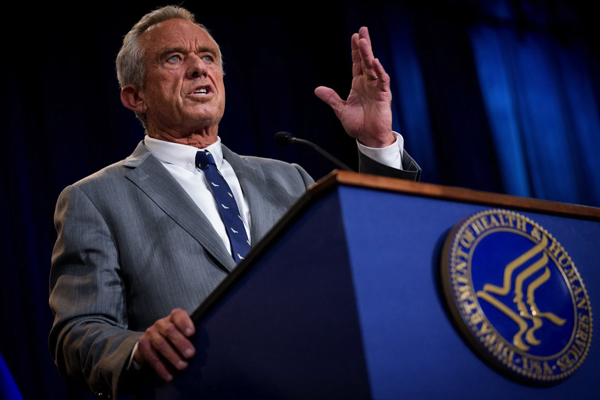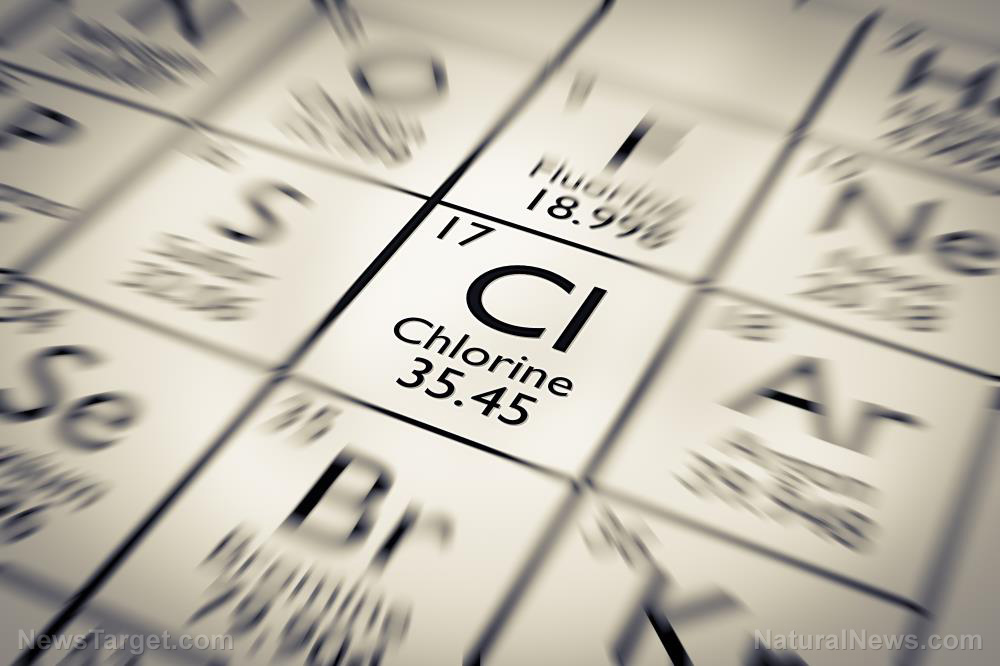Unraveling the mystery of food allergies: RFK Jr announces federal investigation
11/20/2025 / By Willow Tohi

- Health Secretary Robert F. Kennedy Jr. has announced a new federal research initiative to identify the causes of food allergies.
- Kennedy questioned the dominant scientific theory that allergies stem from a lack of early childhood exposure to allergens.
- He specifically cited aluminum in vaccines and pesticides as potential environmental triggers requiring investigation.
- The announcement signals a significant shift in federal health priorities toward exploring previously overlooked hypotheses.
- This new direction follows a 2017 study that found higher rates of allergies in vaccinated children compared to unvaccinated peers.
In a move that challenges long-standing medical consensus, Health Secretary Robert F. Kennedy Jr. has declared that U.S. government agencies will actively investigate the root causes of the nation’s food allergy epidemic. Speaking at a Washington event for the Food Allergy Fund on November 17, 2025, Kennedy argued that key hypotheses, including the widespread belief that early allergen avoidance is to blame, have not been adequately tested. He specifically pointed to environmental factors like aluminum in vaccines as a prime suspect, pledging to launch the human studies he says have been conspicuously absent.
Challenging the dominant narrative
The prevailing scientific explanation for the rise in peanut and other food allergies has centered on the “hygiene hypothesis” and related theories. This model suggests that modern, clean environments and delayed introduction of allergenic foods have left children’s immune systems under-trained, leading them to overreact to harmless proteins. This thinking led to recommendations, now reversed, that parents avoid giving children peanuts until age three. Recent studies showing a drop in peanut allergies since the guidance shifted to early introduction have bolstered this view. However, Kennedy dismissed this logic, citing his personal experience in a peanut-filled household where five of his children still developed allergies.
The aluminum question takes center stage
Kennedy identified aluminum salts, used as immune-boosting adjuvants in many vaccines, as a primary candidate for investigation. While the Centers for Disease Control and Prevention states that aluminum has been used safely in vaccines for over 70 years, it also acknowledged a 2022 study by its own researchers that found a possible link to the development of asthma. Kennedy’s focus is supported by a 2017 pilot study published in the Journal of Translational Science, which surveyed mothers of homeschooled children. That research found vaccinated children had a higher rate of allergies and neurodevelopmental disorders than their unvaccinated peers, even after controlling for other factors. The study’s authors emphasized the need for larger, more robust research to verify the unexpected findings.
A research shift decades in the making
The call for comparative studies on vaccinated and unvaccinated populations is not new. For years, health freedom advocates and some scientists have pointed to a critical gap in the literature. In 2005 and again in 2011 and 2013, the National Academy of Medicine (then the Institute of Medicine) highlighted this very need, recommending studies to examine the long-term health outcomes of the entire vaccination schedule. Despite these recommendations, such large-scale, prospective studies were never initiated by federal health agencies, leaving fundamental questions about the cumulative impact of vaccines unanswered. Kennedy’s announcement represents a formal commitment to finally address this long-standing research gap.
The road ahead for allergy science
The new research direction was met with a measured response from within the National Institutes of Health. Dr. Jeffery Taubenberger, acting director of the National Institute of Allergy and Infectious Diseases, later affirmed the success of early exposure research but agreed that more work on prevention is needed. When asked by NIH Director Dr. Jay Bhattacharya how to study the aluminum hypothesis, Taubenberger stated it would require expensive, long-term and well-designed clinical trials. This underscores the complexity and scale of the undertaking Kennedy has proposed, signaling that definitive answers will not be immediate.
A new chapter in public health inquiry
The federal government’s pivot to actively investigate vaccine ingredients and other environmental triggers for food allergies marks a profound shift in public health policy. By moving beyond the confines of established theory and committing to explore controversial but persistent questions, the Department of Health and Human Services is opening a new chapter in one of modern medicine’s most perplexing epidemics. The success of this endeavor will depend on rigorous, transparent science that can either confirm or lay to rest long-held suspicions, with the potential to reshape our understanding of the immune system and its 21st-century challenges.
Sources for this article include:
Submit a correction >>
Tagged Under:
This article may contain statements that reflect the opinion of the author




















